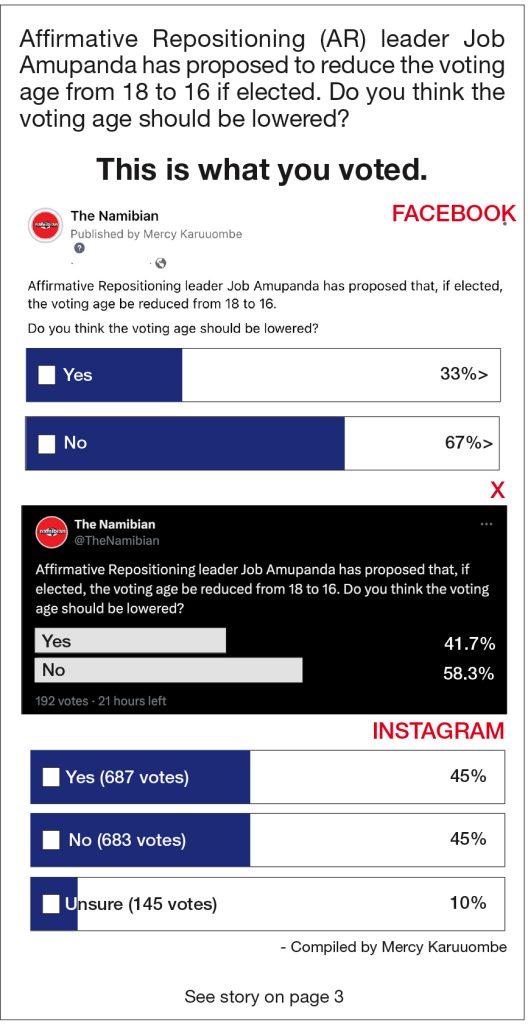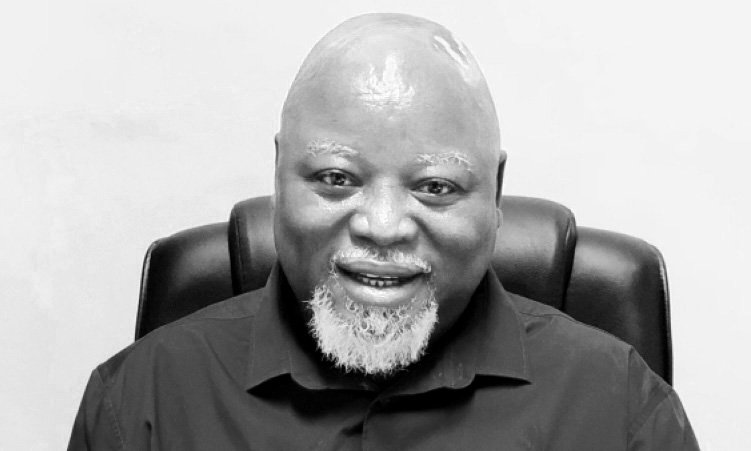Affirmative Repositioning (AR) leader Job Amupanda’s suggestion to adjust the voting age to 16 if his party wins the upcoming elections has been welcomed by some analysts.

Amupanda revealed this plan on Tuesday while addressing party supporters and sympathisers.
“At 16, called the ‘age of consent’, children can have sex, get pregnant and become a father or mother. A year later, at 17, they can attend parents’ meetings at school,” he said.
He said minors are able to obtain national identity documents and open bank accounts at 16 and attend university and “stay on their own” shortly thereafter.
Political analyst Ndumba Kamwanyah says the AR’s proposal could empower the youth and ensure their voices are heard.
“By highlighting the various responsibilities and rights already granted to 16 and 17-year-olds, Amupanda makes a compelling argument for extending voting rights to this age group,” he says.
CONCERNS OVER MATURITY
Kamwanyah says this, however, raises questions about the readiness and maturity of younger individuals to participate in elections and make informed decisions.
Meanwhile, political analyst Ben Mulongeni questions the ability of a 16-year-old to make decisions.
“You cannot be made to make choices at the entrance of adulthood,” he says.
At 16, minors are still playful with little understanding of “how life is supposed to be lived”, he says.
“Kids can play with snakes to see if they really bite. I suggest we start with the discussions first, understand scientifically what reasons were considered when it was first decided to be set at 18 and see if we can decide otherwise. It’s not up to one person to decide,” he says.
Political analyst Johannes Coetzee says the initiator of the action could have overlooked the ability of the average student of 16 years to make an informed decision.

“Minors at the age 16 may not be well-equipped intellectually and emotionally to discriminate against political information within a broader perspective and to identify politics and dog hunting to make an informed decision, compared to 18-year-olds and older,” he says.
He says it should be noted that 75% of Grade 11s by the end of 2023 could not proceed with Grade 12 or tertiary education.
Coetzee says a substantial number of 16-year-olds are still in the care of their parents and are not emotionally developed enough to make independent decisions.
“Such dependency may also influence 16-year-olds staying in remote areas to vote based on the preference of their parents’ political affiliation,” he says.
Meanwhile, Kamwanyah says focusing exclusively on the youth could provide the AR with a strong and dedicated voter base.
“Neglecting other age groups would be a strategic misstep,” he says.
Kamwanyah says the AR can position itself as a more inclusive and resilient political force by addressing issues that affect the entire population while maintaining a strong youth-centric approach.
He says the perception that the AR is primarily driven by Amupanda is a potential challenge.
“If the party is seen as a one-man show, it risks being undermined by internal and external pressures, particularly if anything happens to Amupanda or if his popularity wanes,” he says.
Stay informed with The Namibian – your source for credible journalism. Get in-depth reporting and opinions for
only N$85 a month. Invest in journalism, invest in democracy –
Subscribe Now!










